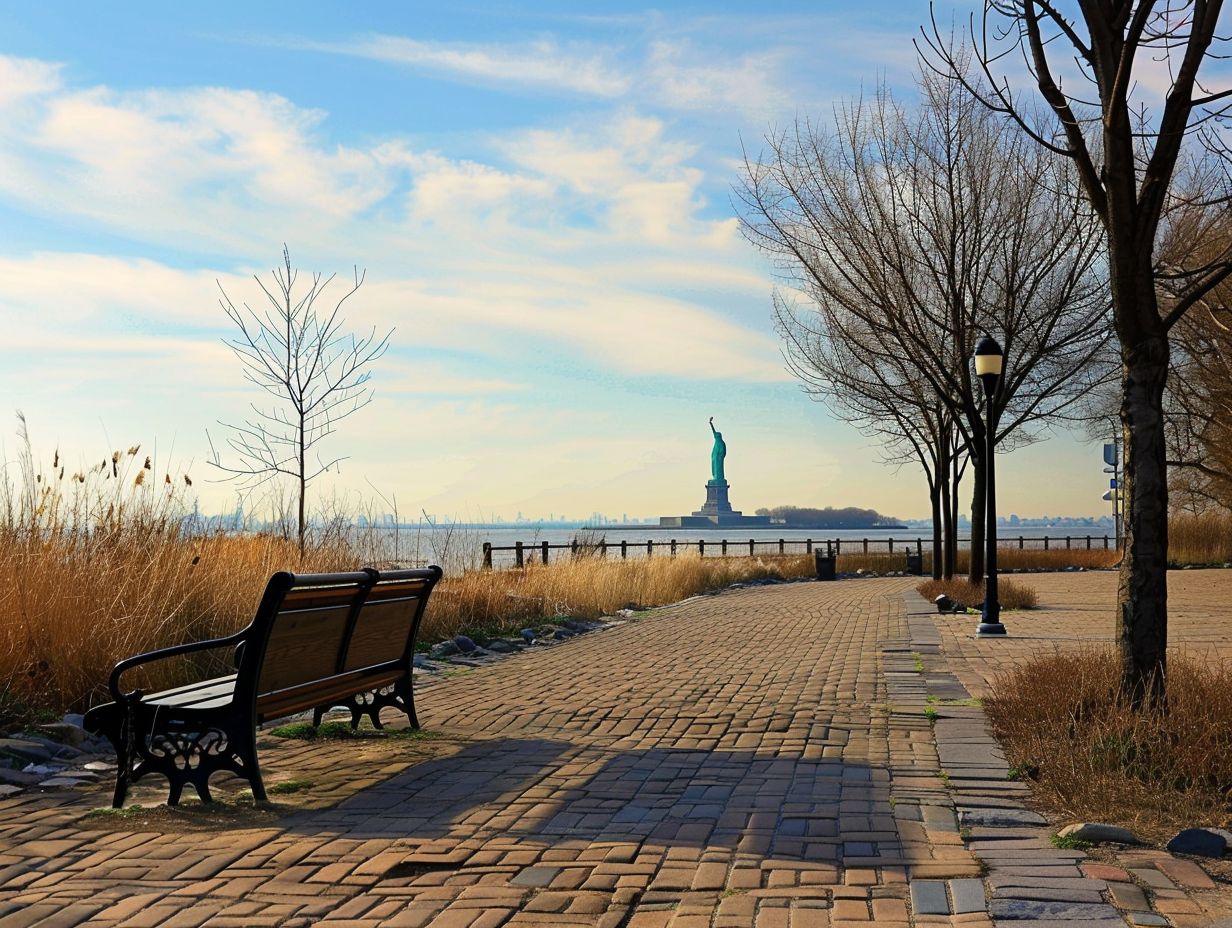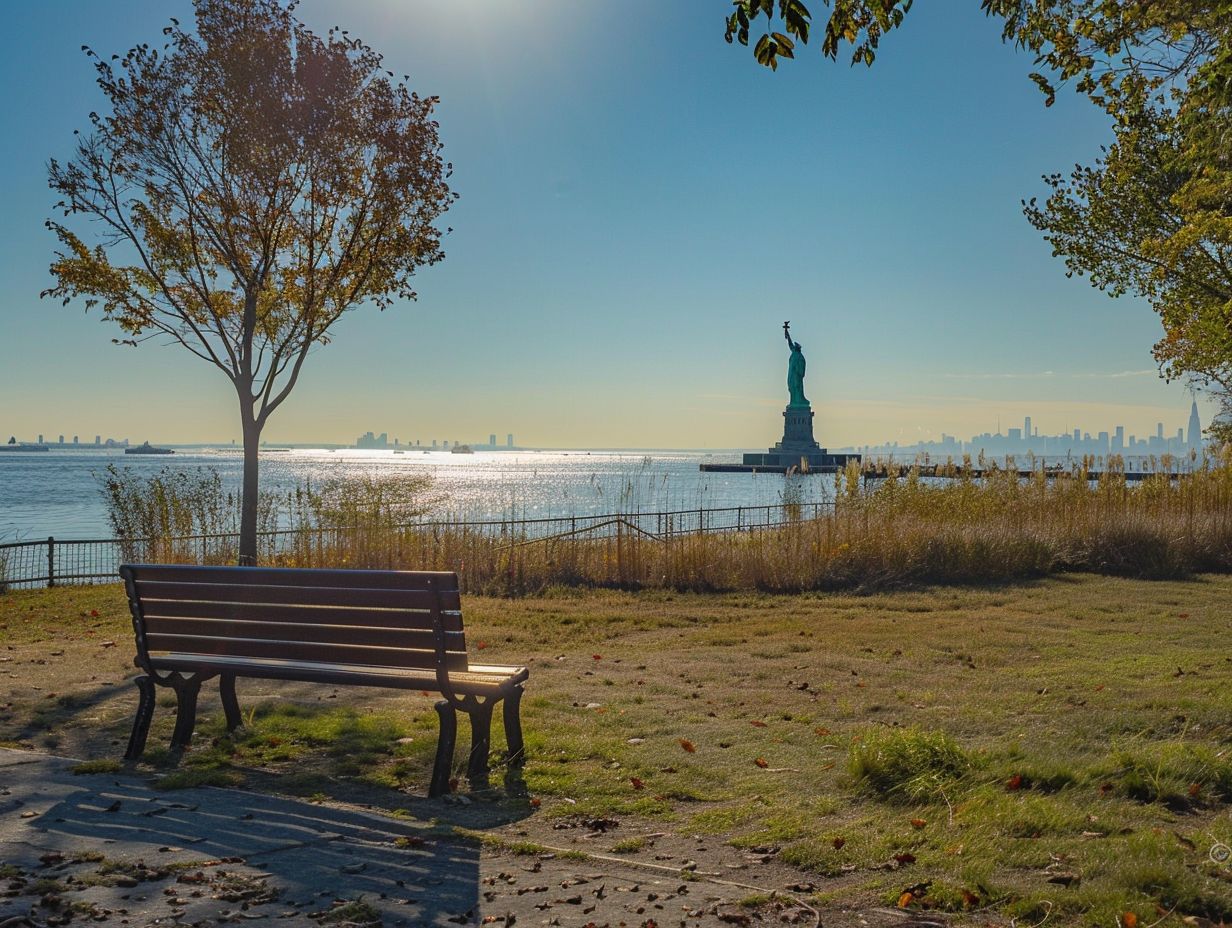The Liberty State Park Design Task Force is a group established by the New Jersey Department of Environmental Protection (NJDEP) to revitalize and improve Liberty State Park. The task force is responsible for developing both short-term action items and a long-term master plan for the park, focusing on improving park facilities, programs, and amenities, creating new transportation and mobility services, and preserving natural resources and wildlife.
What is the Liberty State Park Task Force?
The Liberty State Park Design Task Force is a 23-member group that includes representatives from the NJDEP, Friends of Liberty State Park, Liberty State Park for All, Jersey City government, Hudson County government, Jersey City Public Schools, and the NAACP, as well as members of the public appointed by the Governor, Senate President, and Speaker of the General Assembly.
The task force’s primary goals are to:
- Develop short-term action items to improve the park’s facilities, programs, and amenities.
- Create a long-term master plan for the park’s revitalization.
- Focus on enhancing transportation and mobility services within the park.
- Preserve the park’s natural resources and wildlife.
Key Details about Liberty State Park

- Liberty State Park spans 1,212 acres and attracts over 4 million visitors annually.
- The park’s revitalization program aims to bring over 100 acres of active recreational, arts, and cultural improvements.
- The task force’s goal is to improve access to the park for local residents, particularly those disproportionately affected by climate change and the COVID-19 pandemic.
Recent Developments and Proposals
In recent news, the Liberty State Park Design Task Force has presented some new options for the park’s redesign. However, some members are pushing for a fresh start to the process, as the cost, timings, rates, and value specific to the task force’s plans have not been disclosed.
The NJDEP has also asked the task force to consider what kind of active recreation facilities should be included in the park’s southern section and how the state can assist Jersey City with its recreational space needs outside of the park.
Proposed Improvements and Amenities
The Liberty State Park Revitalization Program aims to bring a variety of improvements and amenities to the park, including:
| Improvement/Amenity | Description |
|---|---|
| Active Recreation | Expansion of sports fields, playgrounds, and other active recreation facilities |
| Arts and Culture | New performance spaces, art installations, and cultural programming |
| Transportation | Improved public transit access, bike and pedestrian infrastructure, and parking |
| Natural Resources | Habitat restoration, wildlife conservation, and environmental education |
| Visitor Facilities | Upgraded restrooms, concessions, and other visitor-focused amenities |
Preserving the Park’s Legacy
In addition to these physical improvements, the Liberty State Park Task Force is also focused on preserving the park’s rich history and natural legacy. This includes:
- Protecting the park’s wetlands, meadows, and other sensitive ecosystems.
- Maintaining the park’s iconic views of the Manhattan skyline and Statue of Liberty.
- Honoring the park’s role in the history of immigration and the labor movement.
- Ensuring that the park remains accessible and welcoming to all visitors, regardless of their background or socioeconomic status.
Conclusion
The Liberty State Park Design Task Force is working to revitalize one of New Jersey’s most iconic public spaces. By focusing on improving facilities, enhancing transportation and mobility, and preserving the park’s natural and cultural heritage, the task force aims to make Liberty State Park an even more vibrant and inclusive destination for residents and visitors alike.
References:
- Call to take Liberty State Park design task force meeting behind doors rejected as public sees new options
- Liberty State Park Design Task Force
- DEP asks Liberty State Park task force what is needed for active recreation in the park
- Liberty State Park Revitalization Program
- P.L.2022, CHAPTER 45, APPROVED APRIL 18, 2022

